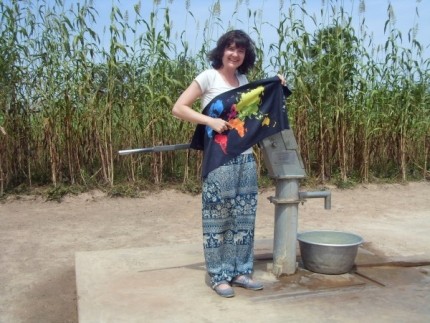
Q&A With Salome, WFLI Benin Vision Trip Participant
Salome from Germany recently participated in Global Aid Network (GAiN) Canada’s 2018 Benin Vision trip.
Q: How did you first hear about GAiN?
A: I heard about GAiN some years ago when my brother and his wife were involved in helping with one of GAiN Germany’s projects. They recommended that I go on one of GAiN’s mission trips and I ended up going on my first trip to Haiti with GAiN Germany in 2015.
Q: How did you end up hearing about the trip and what made you want to go?
A: In 2016, I sponsored a well for [Benin] through GAiN’s Water for Life Initiative. In 2017, I was informed that it had been assigned to a village in Benin. I was quite curious to see it with my own eyes – especially if there is really a plaque with my name on it. Unfortunately, GAiN Germany did not offer a trip to Benin, however, they let me know that GAiN Canada offers a vision trip. Thus, I contacted the Canadian office and was lucky to meet Lily, GAiN Canada’s LIFE Teams Manager. The trip was scheduled for the southern part of Benin (where the GAiN office and accommodation are located), however, my well was 600 km north. Lily and the GAiN Benin staff helped organize an individual three day trip for me to see my well in the north. Still, today, I appreciate their efforts.
Q: What did you do and see while on the trip?
A: We visited several small villages, every day seeing a different aspect of the Water for Life Initiative:
- Drilling of the well
- Flushing of the well (when an air compressor pushes the water out of the top of the well to clean out dirt and debris from drilling, causing clean water to spray out of the well)
- Watching presentations from GAiN partners DRIME (Disciples Ready in Mobile Evangelism) and The JESUS Film Church Planting Strategy
- Attending Hygiene and Sanitation Trainings
- Celebrating in a newly planted church and experiencing African worship
- Taking part in the weekly staff and prayer meetings
- Visiting the village that I had sponsored a well for [it is called Dipokor Fontri] and talking to the residents of the village
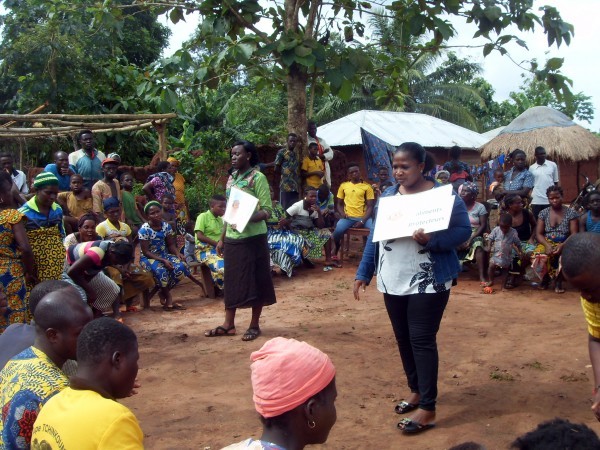
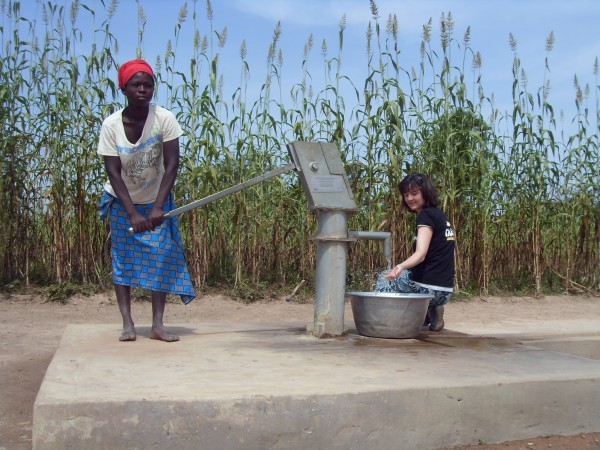
Q: How was the journey from the GAiN Benin office to the village of Dipokor Fontri?
A: The journey from the south (GAiN office) to the north (my well) and back was really exciting. It took me 11 hours one way and an additional hour for a repair stop because the car’s gas pump was malfunctioning. This was on the trip to the north and for a moment I thought I would never arrive at my destination. I sat in the shadow of the “open air garage” that we found along the way, and prayed while eight Africans cleaned the pump. Finally, it worked and we could continue on our trip.
Most of the distance was on a potholed asphalt road. Overtaking manoeuvres of heavy trucks and overloaded cars, as well as lane changes, caused me to close my eyes from time to time. On the other hand, I opened my eyes widely to catch all the sights of small villages, busy wives, simple markets on the roadside, churches, mosques and fields with interesting plants and much more. The closer we came to my village the more the road changed into a path and the last kilometer I had to walk through fields like a scout.
On this trip I was accompanied by a GAiN Benin staff member and a driver. Communication was in french. We had two overnight stays in a hotel, in the typical local style, in a quite big city three hours away from my village.
Q: What were some highlights of the trip?
A: Seeing how motivated, well-organized and dedicated the local staff is to demonstrating the love of God. Seeing the partnership of the JESUS Film Church Planting Strategy and seeing a screening of the JESUS film in the village. Visiting Dipokor Fontri. I got to see the impact that a well makes in the lives of the people and to talk to inhabitants of the village and see their gratefulness. As a present, they gave me 25 kg of sweet potatoes and yams from their fields. The chief of the village said: “We do not have a lot. But what we do have we would like to share with you.”
Q: How did you see God’s love demonstrated in the field?
A: I was encouraged to see the local staff live out love in everything they do. During drilling the GAiN staff sleeps in the huts among the villagers and not in hotels. This way they show humility and that they are just one of them. During weekly staff meetings the local staff not only pray for the work but also for the donors. The trainers are well prepared for the hygiene and sanitation trainings.
In partnership with the JESUS Film Church Planting Strategy, the staff involved contact local pastors before the drilling of a well and stay in contact with them after new people join the church.
Q: What were your expectations of the trip before they left and how were they compared to what you experienced?
A: I expected that we would see the well in some villages and hear the story of how it was constructed. My expectations were exceeded. I did not expect that I would be on spot to see a well being drilled and see the flushing of the well or see a showing of the JESUS film and attend a hygiene and sanitation training.
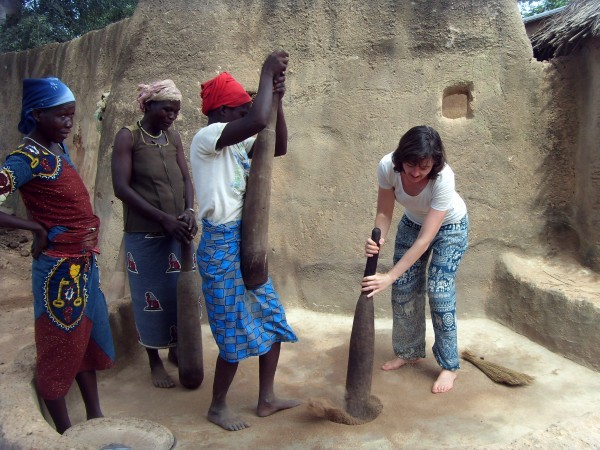
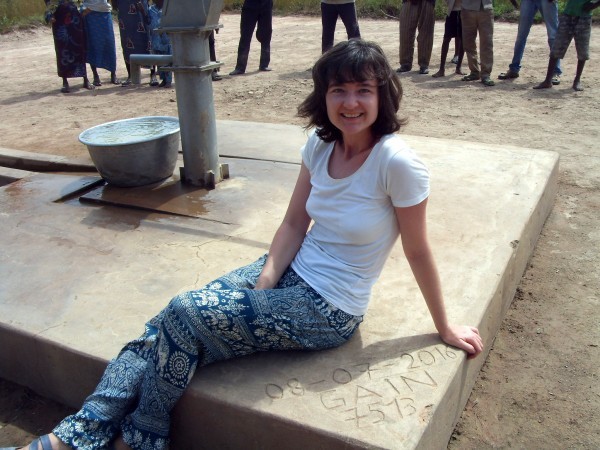
Q: Would you recommend that people go on a vision trip with GAiN?
A: Yes, I would definitely recommend going on a vision trip. It’s great to see the impact of a donation – not only from photos in an annual report but on site.
Q: Do you have any other experiences or comments that you would like to share?
A: I believe in Water for Life Initiative’s wholistic concept that includes the following:
- Providing wells- because clean water in the villages saves lives.
- Partnering with the JESUS Film Church Planting Strategy to share the message of God’s love and connect people to local churches and further resources for spiritual growth.
- Hygiene and Sanitation Training teaches people who have no access to education about proper hygiene habits and how to avoid diseases.
- Ensure maintenance of the wells by:
- Having a well committee in each village
- Training and equipment of regional technical staff for repairs
- Monitoring – staff regularly return to the villages to manage the wells and the work of the committee (this guarantees the functioning of the well for long-term sustainability).
All of this is done by locals!

Leave a Reply